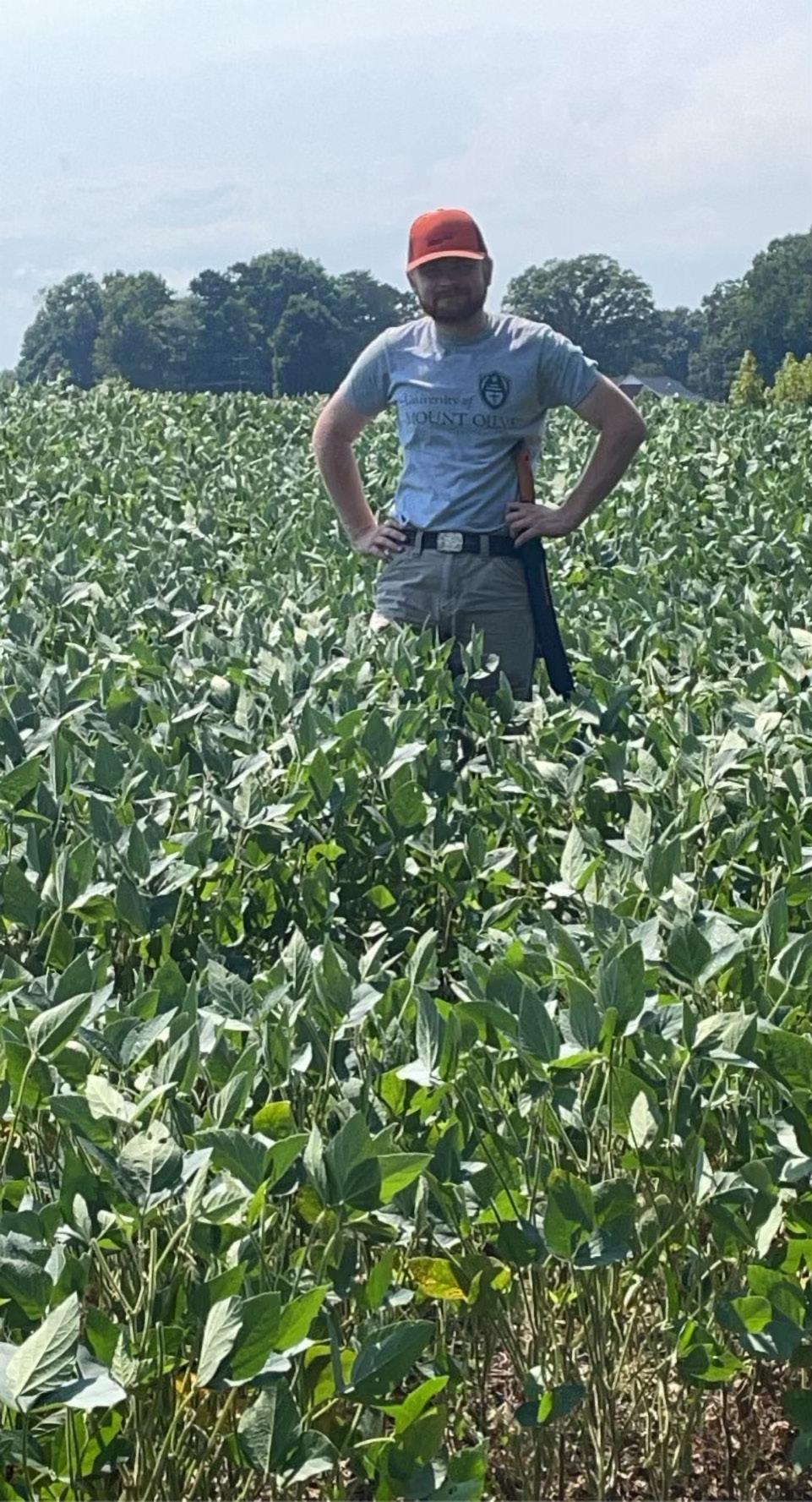
1 minute read
The Recent Buzz at UMO North Carolina School Update
By Dr. Jason Davis, Assistant Dean, School of Agriculture & Biological Sciences
For centuries, humans have harnessed the power of bees to produce honey and pollinate numerous crops and commodities. In recent years, however, bee populations have experienced a decline due to pesticide overuse, parasites, pests, climate change, and loss and destruction of habitat (Jonker, 2022). Now, members of the University of Mount Olive (UMO) community are making efforts to help boost honeybee colony numbers, educate future leaders and encourage participation in sustainable practices. Along with a nonprofit organization known as the Beekeepers of the Neuse, UMO faculty and students recently began work to build and maintain a new apiary, the Trojan Apiary, at the Kornegay Student Farm, located about five miles from the UMO campus.
Advertisement
The partnership began in 2022 with a certified beekeeping course provided by the nonprofit for UMO students, with an inaugural class of 12 students training to become certified beekeepers. The Beekeepers of the Neuse also then pitched in to assist with the creation of the Trojan Apiary. Initially, one package of bees was purchased to begin the first hive. Two other swarms were then caught using swarm traps and transferred into hives at the apiary.
UMO also has worked to incorporate bees and the school apiary into the sustainability plan for the farm, where bees are utilized to pollinate several crops, including strawberries, blackberries, grapes and numerous vegetables. To further UMO’s sustainability plan, several pollinator plots were installed at the farm to provide perennial native wildflowers. The flowers, native to Eastern North Carolina, provide pollen and nectar for the bees during periods of the growing season during which flowering plants may not be available. The select mix of flowers was developed specially by Garrett Lee at Garrett Wildflower Seed Farm of Four Oaks, NC (garrettseed.com).
Students play a significant part in managing the bees and pollinator plots, including preparing the plots by prepping the soil with tillage, soil amendments and nutrients, and then planting the seed. By taking an active role, students learn about the complex relationships between native plants and healthy bee populations, as well as the importance of these factors in both the local environment and agriculture production, helping to maintaining a safe, reliable food supply.
The perennial wildflowers provide not only a burst of color and food for our bees, but also a reminder to invest in the environment and wildlife in our area.”

Each year, blackberries and strawberries from the Kornegay Student Farm that are not sold on the fresh market are processed into jars of jam for separate sale. This past holiday season, the jams were sold as a gift trio, along with a jar of honey from the Trojan Apiary.
Jonker, S. (2002) Retrieved from the Internet at: www.visiontimes.com/2022/ 02/13/declining-honey-bee-population.html.










